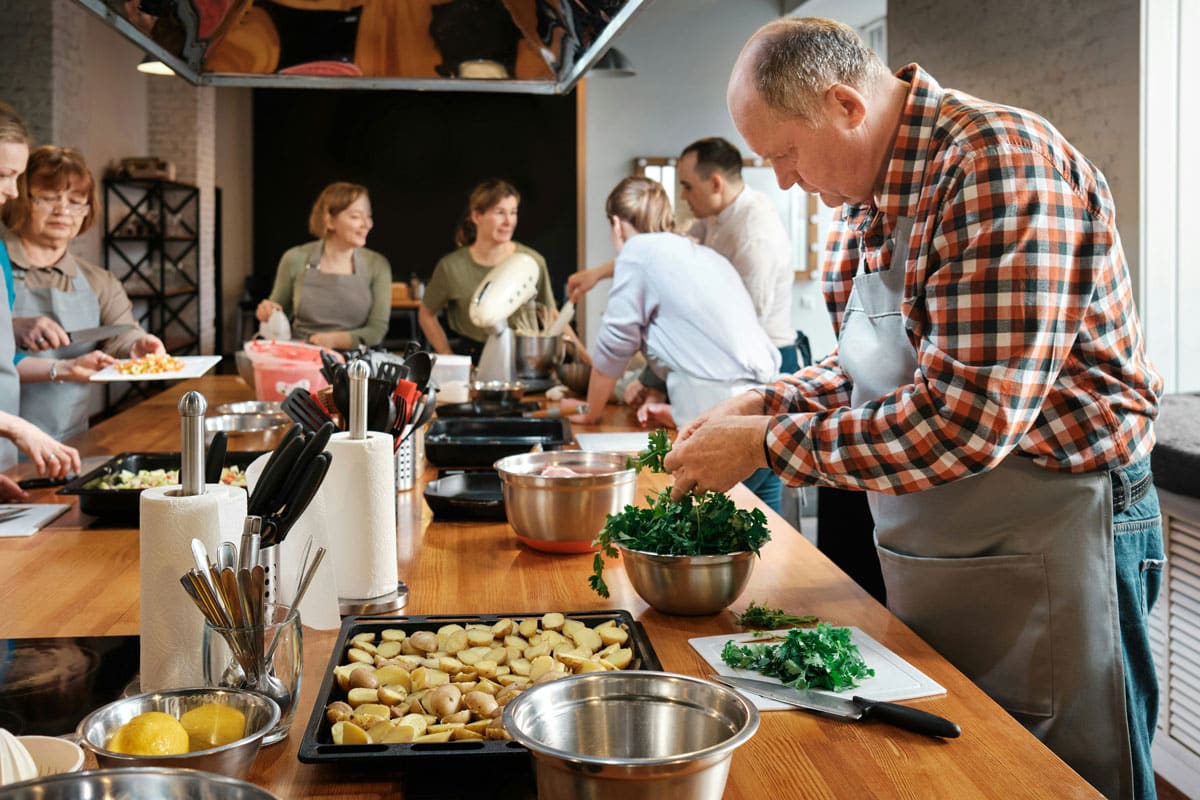There it is — your kitchen. Spotless, spacious and so blissfully unaware of the role it will soon play in your first-ever holiday feast. With invitations sent out and a massive bird on order, how can you begin to prepare for the pandemonium this space will see when famished friends come to the door?
The Ontario Lottery and Gaming Corporation has a great slogan that reads, ‘know your limit, play within it’. For us at Charles MacPherson Associates, that resonates strongly in the event community.
With that sentiment in mind, the would-be host should begin by having a frank conversation both with themselves and with their kitchen space.
First ask yourself, “can I truly prepare the meal that I have in mind?” “Am I realistically ready for this ‘feast of the century’ that I’ve sold to my friends?”

Sure, we love the fantasy of a refined flock of our friends sitting elegantly around the table. But if you’ve never turned your oven on or fit more than five people into your apartment, the holidays may not be the best time to mount a test run.
For the brave soul who’s decided that they would like to go forward with feeding hungry friends for the first time this holiday, organization will be the key to controlling your kitchen. You’re going to need to post a schedule for yourself since you’re going to have a modest to large amount of people in your home, and a meal that will require you to be very mindful of time.
A good strategy we use here at CMA is that prior to our own dinner parties, everything that we will need to prepare, cook or serve is written down on a piece of paper and posted on the fridge along with the time each element will take.
When you’re doing this you should also factor in the inevitable, surprise additions of other edibles. If Aunt Sally brings a casserole to the door for example, and that takes 20 minutes to heat up, that goes on the list.
Once hungry guests start trickling in for the evening, there will surely be a few fine individuals who come straight for the kitchen looking for a drink. You’re going to need your space. So to help keep your kitchen clear, you should set up a bar well outside of the kitchen with wine, beer, water, and glasses. This way, they can help themselves and keep clear of your workspace.
We also recommend that hosts set down a few decoy cutting boards or cookie sheets, to alert those who want to dump their coats on the counter that this is a spoken-for space.
You should also anticipate the antics of your guests. If you know your cousin, who has watched every episode of Iron Chef, is going to insist on carving the turkey, set up a station for him in advance. And if your neighbour Mary wants to chat with you about the cost of raising kids in Ontario, throw her a few potatoes to chop while she’s ranting away.
Assigning a bouncer to one’s kitchen is another great way to avoid turkey traffic. This needs to be someone who is useless at cooking but understands the importance of the process. Tell them you want to ensure people have a good time, but need to keep them out of the kitchen.
And once the bird has been served and the desserts have been devoured, it is fair to assume that some holiday hosts may feel the need to be benevolent during the cleanup process. This is not the time to be bashful. Throwing a beautiful meal for so many people usually destroys your home. Potatoes boiled over, and spattered turkey grease are small prices to pay for that perfect, crispy skin.
With that in mind, we recommend that all holiday hosts should accept any help when it is offered. Holiday dinners are inherently messy. Accepting help from your guests, whether its helping with the clean up, drink preparation, or cooking, is what the holiday season is all about. Everyone pitching in to have a great time.

